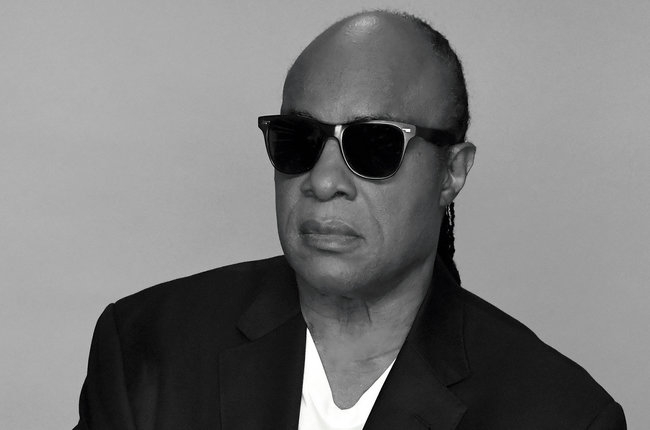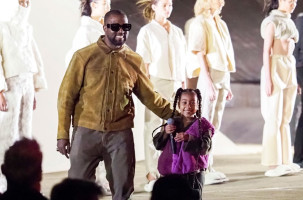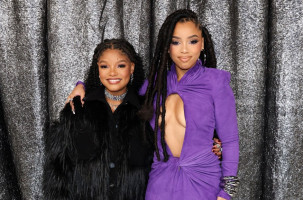We live in an age where technology and creativity are intersecting in ways like we have never seen before. The constant advent of new methods to create, record and distribute one’s own songs has allowed countless new artists to express themselves to the world in sharing their music and their words. People are discovering new talent in ways never thought of 10 years ago and new generations are being exposed to those who came before them with ease and access that my generation didn’t know growing up. (Can you remember hearing an album for the first time and then not being able to find it in a store? Today it’s a click away.)
Of course, as new technology comes in so much of our old technology goes out. They become museum pieces, like an 8-track or a Betamax. But some old technologies never go away. They are mainstays of our life, so embedded in the fabric of our daily routines that to forgo or replace them would seem not only distressing but confusing -- as in, “Why would I want to?”
A perfect example: radio.
While new technology has certainly had its impact, the most constant source of news and entertainment during the last 100 years has been broadcast radio. Long before anyone conceived of something as futuristic as the World Wide Web, and long before TV become our eye into the world, radio was the mass common communicator. It brought not only music and entertainment into our homes, but news, war and God. It helped shape the psyche of the country in difficult times and it served to reassure us that we were not alone at times we thought we were. And while seemingly eclipsed through the years by other forms of mass communication, radio remains that constant that we rely on to always be there to deliver what we need.
Radio’s role in music is undeniable. While talk radio is obviously a strong pillar in the broadcast community, the first thing most people think about when they think about radio is hearing their favorite song. Or tuning in to listen to their favorite radio personality, because to this day DJs are often just as big a star as those on the records they spin (an out-of-date metaphor, I know, but you get the point). Radio’s influence on the tastes of the masses is almost unmatched in reach and effect, primarily because of the ease and comfort afforded its listeners. And no matter how much current artists embrace new technology and platforms to spread their music, if you ask any one of them, they will still tell you that their biggest kick came from hearing their song on the radio for the first time.
Now, some say radio today is too homogenized, too preprogrammed by the conglomerates that own the stations. I am not here to weigh in on that debate. However, the large networks of corporate stations are not the only players left. All across the country there are still independent station owners maintaining a strong and vital link to their communities in the form of being not just a source of entertainment but also the eyes, ears and voice of their listeners. They are small-business men and women trying to be of service to their local markets while also dealing with the obstacles of running a radio station.
I know these people very well, because I am one of them.
I have owned station KJLH for almost 40 years. When I bought the station, it had been started by a pioneering African-American -station owner in 1965, John Lamar Hill, and it was the first black-owned station west of the Mississippi. Upon my purchasing the station from Mr. Hill, we agreed that it was vital to both he and I that the integrity of KJLH be maintained as a small independent business. It is a great source of pride that we continue to be licensed to the city of Compton, Calif., serving the community and the greater Los Angeles area by bringing news, information, contemporary and vintage artists to the attention of our audience while also being there at times when our community is in need. We strive to be a meaningful member of our community and offer things that nationwide programmers can’t. We are a home to our listeners, a place they find comfort and refuge from the mass market.
But all of that is threatened if we can’t stay in business.
As a songwriter and recording artist, I grew up at a time when there were only two performing rights organizations in the United States, ASCAP and BMI. (I note for the record that in virtually every other country in the world there is only one society.) Then came a third, SESAC. And now we have a fourth: GMR. I will not go into financial details here, but what is happening to independent station owners is that we are facing higher costs to play the music our audience wants to hear, but with no decent explanation of the how and why these higher costs are justified. We have societies that lose significant artists to other societies but make no adjustment in the fees they charge to stations for their remaining roster. It almost feels like we are paying for the same thing twice. I believe strongly that businesses that make a living from the creativity of artists -- whether it be music, TV, film or theater -- must fairly and adequately pay those artists for the right to use their art. And that goes for radio station owners like me.
But what we have isn’t fair, and it isn’t open. I don’t have the clout or the leverage as a station owner that the big networks of stations do, and I don’t have their audience size, yet I am subject to the same allocated costs as they are. We have two societies that exist under consent decrees by the U.S. Department of Justice, while the other two are profit-generating enterprises, with obviously different agendas. We have chaos, unfairness and inequity.
“But wait a minute,” I hear you say. “Aren’t these higher fees going to compensate writers? And aren’t you one of those writers? Whose side are you on?”
Of course, I am a songwriter and want to make sure that I am always treated fairly, as I do for all writers and composers. But I am in a unique situation, because I wear two hats. After all, how many artists have their records played on their own station? However, I am not in conflict over this issue. To the contrary, mine is probably the most reasonable and fairly balanced perspective one can have.
I want there to be a solution that allows the creative community to thrive and be fairly paid by those profiting from their works, while at the same time allowing the economics to work from the broadcaster side, too, so that they can continue to provide the vital service that they do.
I am not suggesting that any of our performing rights organizations need to fold their tent, but I am concerned that the current state of affairs could lead to an even greater breakdown of fairness and equality among broadcasters that can’t afford ever increasing costs. Who is to say that there won’t be a fifth PRO, or a sixth or a seventh? How many licenses will we need to get? And how will we be able to track when artists jump from one PRO to another? Will we wind up paying for the same thing twice, or even three times? How can any business run that way?
There are lawsuits in the courts as I write this, and I don’t begin to think I know better than the lawyers whose legal position is the more valid -- to me, this shouldn’t have to be left to a court to decide. We are all in this creative community together, stations and artists, and we should be able to find ways to recognize the vital role we play in each other’s lives to everyone’s mutual benefit. But there needs to be give and take. As a wise attorney once said to me: “Any negotiation where everyone is just a little bit unhappy means the outcome was fair.”
Let us all find a way to create a better system that takes away the need for any of us to be unhappy. Let us work together to get this thing right.
This article originally appeared in the Feb. 18 issue of Billboard.








